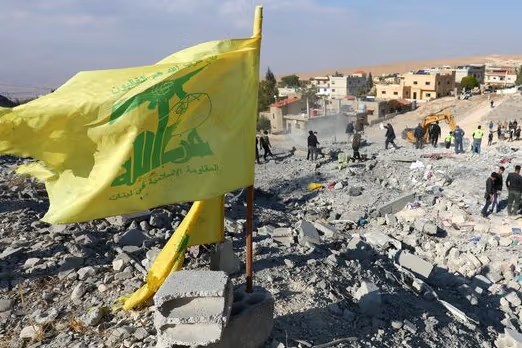UAE emerges as hub for Iranian funding of Hezbollah - WSJ

The United Arab Emirates (UAE) remains a central conduit for Iranian funds reaching Hezbollah despite international sanctions, the Wall Street Journal reported on Thursday.

The United Arab Emirates (UAE) remains a central conduit for Iranian funds reaching Hezbollah despite international sanctions, the Wall Street Journal reported on Thursday.
The newspaper cited Arab officials as saying that Iran routes money through UAE-based shell companies and hawala networks, or traditional means of transferring money that mostly skirt easy tracing. Hawala brokers in the UAE convert and move cash without creating bank records.
Hawala is a centuries-old informal money transfer system rooted in trust, operating outside traditional banking. No funds physically cross borders, brokers later settle balances through trade, reverse transfers or cash.
Hezbollah remains one of the most important armed allies of Iran in the region even after it took punishing blows from Israel in a war which was paused late last year.
To evade stricter airport controls, Iran now dispatches more travelers carrying smaller, undeclared amounts of cash and jewelry, the Journal cited the officials as saying.
“One billion used to be their entire annual budget, but after the war they need a lot more,” Hanin Ghaddar of the hawkish US-based thinktank the Washington Institute told the WSJ.
Iran supports an array of armed groups via the Islamic Revolutionary Guards Corps (IRGC), providing funding, training and weapons to advance its regional influence and confront rivals like Israel and the US.
Abu Dhabi has opened investigations and promised cooperation with Western allies, but enforcement has been inconsistent because of deep economic links with Iran, the report said.
Hamas and Hezbollah are quietly rebuilding their military capabilities amid a tense ceasefire with Israel, the Jerusalem Post reported last week. Both groups accuse Israel of violating ceasefires aimed at ending the region's two-year-old conflict.
Israel maintains military outposts on Lebanese territory and has carried out sporadic attacks targeting Hezbollah officials, including the assassination of its military chief of staff on Sunday.
Meanwhile Israeli strikes on what its forces call militant targets in Gaza have killed nearly 350 people in the impoverished enclave since a US-brokered truce last month.
‘Disarmament challenge’
Hezbollah and Iran are also active another front, since the government in Lebanon vowed to disarm the group and give the
Lebanon's government is pushing for Hezbollah to surrender its weapons nationwide by year's end, but the chances of its success appear remote.
Hezbollah insists it will only relinquish arms south of the Litani River in a southern sector adjoining Israel once its enemy fully withdraws from the country and stops its ceasefire violations.
Tehran views the surrender of Hezbollah’s weapons as capitulation to the United States and Israel and has dismissed efforts to seize its arms as fruitless.